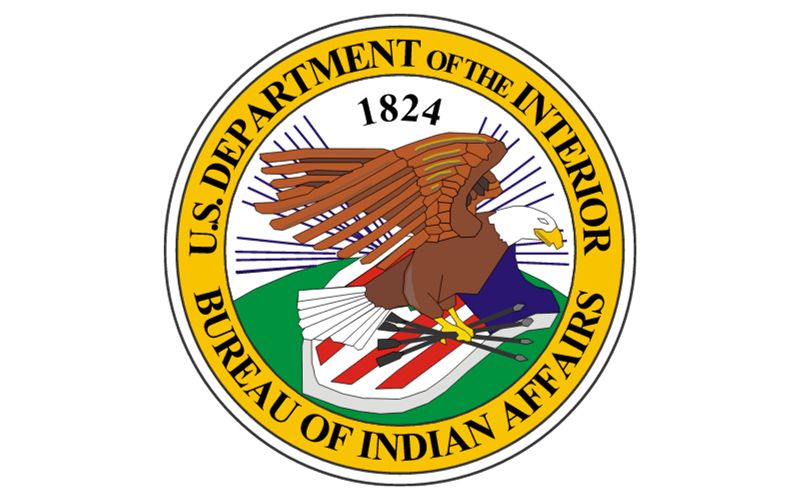
- Details
- By Elyse Wild
Guy and Richard Madison, brothers and members of the Tulalip Indian Tribe, are suing the Bureau of Indian Affairs for failing to comply with a request for their familiar records.
The suit, filed this week, states that at issue is the BIA’s unreasonable delay in responding to the brothers’ October 20, 2020, Freedom of Information Act (FOIA) request seeking familial records relating to their great-grandmother, Katie George, her sister, Fannie George, and their descendants. Records requested include those related to Tribal enrollment, identification, and lineage of family members.
Plaintiffs seeking a declaration from the court that the BIA violated FOIA in its inaction on the request, as well as an injunction from the court directing BIA to provide them with the requested data by a certain time.
The brothers allege the Bureau violated FOIA by:
- Failing to make a timely determination regarding the Plaintiff’s requests.
- Failing to provide a date on which the request would be fulfilled.
- Failing to conduct a reasonable search for the requested records.
The suit details the brother’s intentions of learning about and preserving their family history to pass down to younger generations.
According to the filing, Katie and Fannie were Native Alaskans who lived their entire lives in an Alaska Native village. Forced enrollment in Indian Boarding Schools caused Katie’s children to relocate to Western Washington.
Part of the suit reads:
“Plaintiffs are working to understand their Native Alaskan Lineage, the life of their ancestors, and the stories associated with their family members. Due to a long and painful history of the United State’s control over the lives of Native Americans and Native Alaskans, including Plaintiffs and their ancestors, BIA is uniquely situated to have possession of the PLaintiffs’ family records. BIA’s failure to provide Plaintiffs with their family records frustrates their goal of understanding their family’s history.”
The plaintiffs state their request is time-sensitive and of great significance, as Guy is currently undergoing treatment for cancer.
After submitting an electronic FOIA request on October 20, 2020, the Madisons received a letter from Eugene R. Pelota, Jr., Regional Director of BIA Alaska Region, on December 3, 2020. This letter informed the Madisons that BIA had received their request on October 30, 2020. Pelota informed the Madisons they could “expect to hear from the [BIA] promptly regarding the outcome of this search.”
More than three weeks later, on December 31, the brothers received another letter from Pelota that the BIA would be unable to fulfill the “as the National Archives and Records Administration (NARA) and the American Indian Records Repository (AIRR) is closed due to the Covid-19 global health pandemic. As soon as AIRR opens again, this request will be
processed.”
After several correspondences and attempts to reach out to the BIA in 2023, Madison’s request remains without an estimated date of completion. The brothers are represented by Seattle-based law firm Ziontz Chestnut.
More Stories Like This
Native News Weekly (August 25, 2024): D.C. BriefsNavajo Nation Mourns the Passing of Former Vice President Rex Lee Jim
Deb Haaland Earns Endorsement From Communications Workers of America Local 7076
University Soccer Standout Leads by Example
Two Native Americans Named to Democratic Congressional Campaign Committee's“Red to Blue” Program
Help us defend tribal sovereignty.
At Native News Online, our mission is rooted in telling the stories that strengthen sovereignty and uplift Indigenous voices — not just at year’s end, but every single day.
Because of your generosity last year, we were able to keep our reporters on the ground in tribal communities, at national gatherings and in the halls of Congress — covering the issues that matter most to Indian Country: sovereignty, culture, education, health and economic opportunity.
That support sustained us through a tough year in 2025. Now, as we look to the year ahead, we need your help right now to ensure warrior journalism remains strong — reporting that defends tribal sovereignty, amplifies Native truth, and holds power accountable.
 The stakes couldn't be higher. Your support keeps Native voices heard, Native stories told and Native sovereignty defended.
The stakes couldn't be higher. Your support keeps Native voices heard, Native stories told and Native sovereignty defended.
Stand with Warrior Journalism today.
Levi Rickert (Potawatomi), Editor & Publisher

